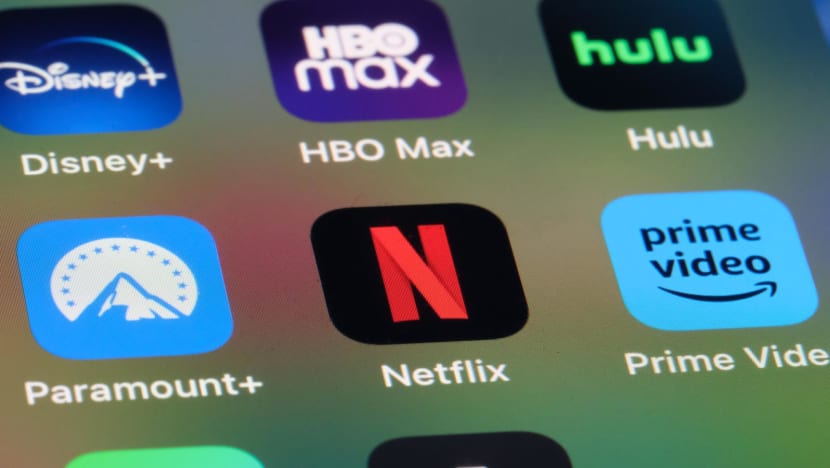Indonesia plans to impose censorship rules on streaming services; analyst says move may turn viewers to illegal sites

A close-up of app icons of streaming services on a phone screen. (Photo: iStock/Robert Way)
SINGAPORE: The Indonesian government is planning to censor the content of streaming services - or over-the-top (OTT) platforms - such as Disney+ and Netflix, with an expert saying that this could inadvertently push local audiences to turn to illegal streaming sites.
On Monday (Aug 21), Communication and Informatics Minister Budie Arie Setiadi said that the censorship plans came after the OTT platforms asserted that they are not broadcasting platforms despite producing audio-visual content.
“We will take action against them,” Mr Setiadi was quoted as saying by Tempo, adding that the plan is still in the discussion phase and has not been communicated to the targeted platforms.
Unlike other broadcasting institutions, OTT platforms are not subjected to Indonesia’s Broadcasting Law which would require them to abide by any censorship measures imposed by the country’s movie censorship board.
Related:
Dr Wu Shangyuan, a lecturer and media researcher at the National University of Singapore’s (NUS) Department of Communications and New Media, said that while censorship may be done by governments with “good intentions”, it is likely to receive a mixture of reactions from the public.
She noted that governments may censor content to protect vulnerable groups from excessively violent or sexualised content, or to “ensure that social norms and values within that society remain strong”.
“It is a move that will be appreciated by some, while for others, it may be viewed as a means to curb their liberties and prevent them from obtaining the same content that may be available to other people based elsewhere,” Dr Wu told CNA.
She added that since audiences are no longer passive receivers of information, they can now actively seek out and discover content online.
“This might result in them turning to other (potentially illegal) streaming sites for uncensored content, especially if the extent of censorship is significant,” she said.
The plan to censor the content on OTT platforms was first shared by the communication ministry’s Director-General of Public Information and Communication Usman Kansong over the weekend.
According to state news agency Antara, Mr Kansong said that the censorship move would ensure justice for the viewers.
“This (issue) must be discussed thoroughly so that questions do not arise (such as): ‘Why are movies shown on Indonesian TV censored?’ Even people smoking are blurred, while movies on OTT are (uncensored),” he reportedly said.
Mr Kansong added that he will gather the relevant stakeholders to discuss the censorship of OTT platforms, including the relevant players, institutions that cooperate with OTT platforms, and the Ministry of Education, Culture, Research and Technology as well as the Film Censorship Institute.
He said that Indonesia already has rules, including that related to pornography, and added that there are options for censorship or localisation. This means setting age limits or broadcast hours.
Besides Indonesia, countries like India, the Philippines and Singapore have also enforced censorship rules on OTT platforms.
In India, the Information and Broadcasting Ministry last month told Netflix, Disney and other streaming services that their content should be independently reviewed for obscenity and violence before being shown online, according to a government document and sources.
Earlier in June, its health ministry also ordered streaming platforms to insert static health warnings during smoking scenes. The country also wants at least 50 seconds of anti-tobacco disclaimers, including an audio-visual, at the start and in the middle of each program.
According to the Washington Post, the Philippines has pulled two episodes of an Australian spy show from Netflix for showing maps of the South China Sea that officials said violated Philippine sovereignty.
And in 2021, Singapore ordered Netflix to remove two shows with drug-related content - namely the series Cooked with Cannabis and the film Have A Good Trip: Adventures in Psychedelics - from its platform.















